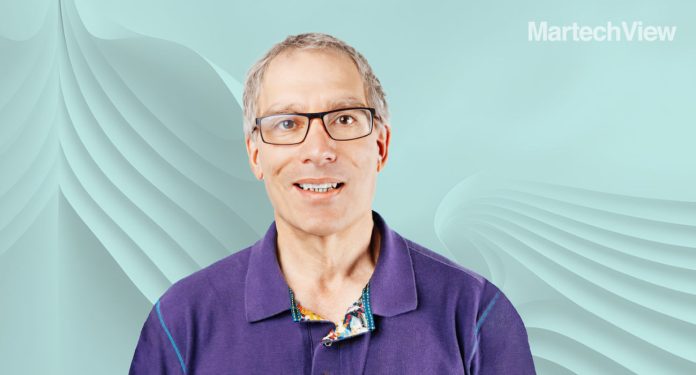From Bruce Temkin’s beginnings as an engineer in submarine missile systems to spearheading Six Sigma projects at GE, Temkin’s unexpected career trajectory shaped his expertise.
In an exclusive interview with Bruce Temkin, Global Head of Qualtrics XM Institute, we unravel the fascinating journey that led him to the forefront of Customer Experience (CX) thought leadership. Despite not intentionally embarking on becoming a CX influencer, Temkin’s career took unexpected turns, ultimately shaping his expertise.
Starting as an engineer specializing in submarine missile systems, Temkin’s early exposure to the intricate dynamics within organizations began to sow the seeds of CX during his second job as a program manager. Leading diverse teams across engineering, manufacturing, quality control, and client management unveiled the power of cohesive collaboration within a unified team.
Post-business school, Temkin ventured into customer service process re-engineering at GE, where he spearheaded one of the first-ever Six Sigma projects. This experience instilled in him a keen focus on process and operational excellence, setting the stage for his future endeavors.
Joining Forrester Research proved to be a pivotal moment. He observed a critical gap in organizations’ focus on technology at the expense of the core element—customer experience. This realization culminated in his groundbreaking 2002 report, “Forget About CRM, Focus on Customer Experience,” which garnered significant attention and initiated a new research stream dedicated to CX as a discipline.
As he delved into organizational dynamics, his fascination expanded to human psychology and behavior, becoming the driving force behind his exploration for the past two decades. Unexpectedly, writing and public speaking became natural extensions of his journey. In our conversation with Bruce Temkin, we uncovered the confluence of passion, experience, and unexpected skills that brought him to his current position as a globally recognized leader in customer experience.
Full interview;
How has the field of CX evolved throughout your career? What are some of the biggest trends you’ve observed?
The evolution of CX has been incredible throughout my career. Back in the day, it was barely a blip on the radar. No one identified as a CX professional, and the concept itself was mostly in the dark. Now, we have a global community sharing best practices and common language. Think about it: at one of the early CXPA events, I had to convince everyone to even agree on “CX” as the term! Back then, CXP and CEM were all the rage.
Talking trends, data, and analytics are game-changers. Understanding contact center interactions at scale opens up a new world of possibilities for CX. And with Generative AI on the horizon, the value of new insights and experiences is bound to skyrocket. I’m thrilled to see CX focus more on business value, something I’ve always championed. It’s easy for newcomers to get caught up in “wowing” customers, but that’s not the core. It’s all about understanding their needs and crafting experiences that align with your organization’s goals.
You’ve worked with both large and small organizations. How does the approach to CX differ between these two types of companies?
I’ve primarily worked with large and very large organizations. At that scale, scaling CX activities through an XM platform becomes essential. Well-defined governance structures and a strong central CX team are crucial for managing diverse needs across departments and regions. Striking a balance between consistency and flexibility in your CX approach is key. Change management also becomes a significant focus, likely my most discussed topic with leadership teams, even when not explicitly labeled as such.
For smaller companies, their nimbleness allows for quicker identification and response to opportunities. While they may require less structured CX approaches, applying scaled-down CX capabilities still offers significant benefits.
Can you tell us about the mission and vision of the Qualtrics XM Institute? What are some of the key research initiatives you’re currently working on?
The mission of the Qualtrics XM Institute is to ignite a global movement of Experience Management (XM) professionals passionate about radically improving human experiences. It may sound ambitious, but empowering individuals and organizations to prioritize experience-centric thinking can create a more positive and fulfilling world. As an operating unit within Qualtrics, we leverage the company’s resources and platform to achieve this mission.
Since acquiring my company, Temkin Group, in 2018, I’ve enjoyed remarkable autonomy in shaping the Institute. This has allowed us to build a thriving community of over 8,000 XM professionals worldwide and curate XMinstitute.com, the industry’s most comprehensive library of resources for CX and EX practitioners.
My current research focus is on understanding and building trust. Following “The Year of Empathy” in 2023, this theme reflects our belief that trust is the cornerstone of meaningful and lasting relationships. Additionally, I continue to explore the impact of Gen AI on XM practices.
How do you stay up-to-date on the latest CX trends and research? Also, you’ve written several books and articles on CX. What are some of the key themes you explore in your writing?
On staying up-to-date and key themes:
My knowledge comes from two fantastic sources. First, my amazing team constantly interacts with XM practitioners and smart colleagues like those at Qualtrics who work directly with clients. This gives us a bird’s-eye view of current trends. Second, people share their newest and most exciting ideas with me, knowing I genuinely appreciate them.
Also Read: Personalization at Scale: How CDPs are Changing the Marketing Game
When it comes to writing, I’m obsessed with understanding human beings. This understanding unlocks value for both organizations and society as a whole. Some key themes I explore include:
- Personalization: How can we tailor experiences to individual needs and preferences?
- Emotional connection: How can we foster deeper emotional connections with customers?
- Technology’s role: How can we leverage technology to enhance CX without losing the human touch?
On balancing roles:
I am a life-long student, pushing myself to learn and find new ways to communicate my ideas. That’s the introvert in me! Everything else, including advising and writing, can feel like a distraction (just kidding… mostly).
As a small team with a big mission, we focus on activities that reach many. So, apart from researching and writing, I speak at events and lead masterclasses to share my knowledge.
Advice for aspiring CX thought leaders:
Find your passion! I don’t see myself as a thought leader, just someone who loves learning and sharing their passion. Forget chasing the “thought leader” label and focus on your learning journey. Share what you learn authentically, and that’s where true leadership lies.










